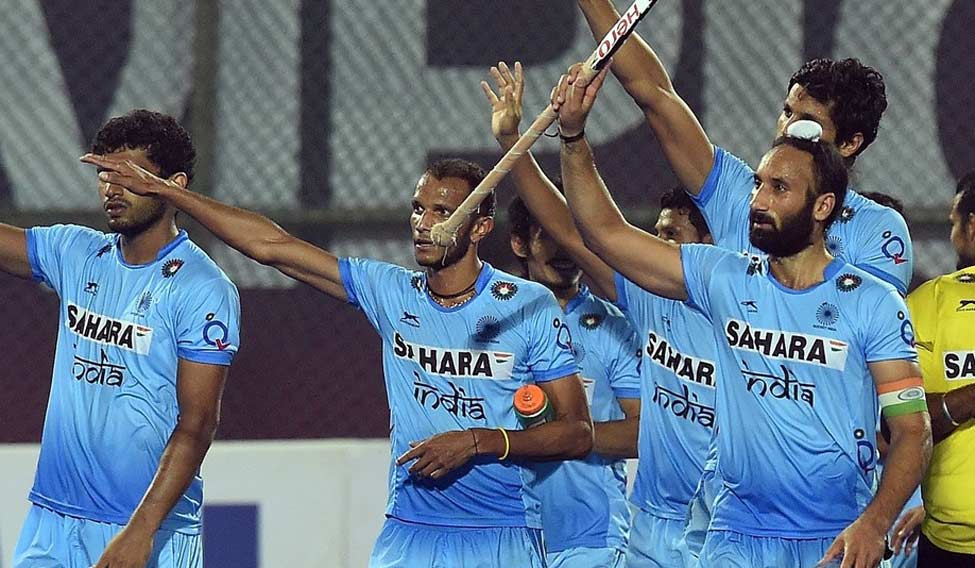Spaniard José Brasa, who was then the Indian national hockey coach, commented prior to the 2010 Commonwealth Games in Delhi that Indian hockey sways between two extremes―people steeped in nostalgia of a glorious past or those who wanted instant success. The renowned Roelant Oltmans, who became the fifth coach to be sacked in the last seven years, is a victim of this syndrome.
The Hockey India (HI) officials lack patience. The 63-year-old Oltmans had always maintained that coaches need long term tenures and overnight success is not possible. A coach does not have a magic wand. He had felt that India needed six years of steady and sustained exposure before the team could match the consistency of the top four teams in world hockey.
World hockey is in a state of flux. The top three countries world champions Australia, four times Olympic gold medalists Germany and current European champions Netherlands' hegemony is now being challenged by many nations. Argentina won a surprise gold medal at the 2016 Rio Olympics. Belgium, which beat India at the 2016 Olympics, is the most improved country in world hockey. Malaysia, Ireland and Japan (hosting the 2020 Olympics and therefore building a strong squad) are all rapidly improving. The HI mandarins must realise that losing twice to Malaysia this year (one of the reasons cited for Oltman’s dismissal) is not a matter of shame. In the past, Malaysia may have been easy pickings for India, but not anymore.
With encouragement by the FIH, many nations like Malaysia, Argentina, Japan, France and Ireland have developed a strong domestic structure and a systematic scouting network. Instead of passing the buck and blaming foreign coaches, it is in these areas that Hockey India must improve. Indian hockey must stop living in the past.
A careful appraisal will reveal there are many reasons why Indian hockey is stagnant. Domestic tournaments are on the decline. Even well-organsied events like the Nehru Hockey tournament get ignored and national selectors do not attend it. In 2018, the Hockey India League may also not be held due to financial constraints. So the national championships may be the only criteria for selection.
Indian hockey does not have a national academy. The Air India Hockey Academy, which functioned from the Major Dhyan Chand Naitonal Stadium in Delhi, folded up in 2010 due to renovation work for the World Cup and Commonwealth Games held in the capital that year. On Oltman’s suggestion, a developmental squad has been formed recently which will play in the Australian league. This initiative could prove beneficial in the long run.
The already dwindling pool of talent will shrink even further if not for the yeoman work by Punjab’s privately run academies like those of the Punjab and Sind Bank and the Surjit Singh memorial hockey society and in Odisha and Jharkhand. After all, from quantity comes quality.
The expertise of Oltmans, who was appointed as a high performance director in January 2013, should have been used for grassroots development and bringing some order to Indian hockey. Instead Oltmans was made to juggle his roles. He was the interim coach for the men’s team twice; women’s team once and even assisted the junior national team. He finally took over the senior team in July 2015 after Paul van Ass’ ouster, but lasted only till September 2017. One of the reasons cited for his exit is that he was rigid in his selections and wanted the same group of core players. HI wanted more players from the Junior India team to be included. This was actually a minor issue that could have been sorted out during negotiations.
The expertise of renowned foreign coaches and the taxpayers' money is wasted. Just as the players get used to his system of play, he gets removed. José Brasa on a salary of Rs 7 lakh per month focused on a tight defence and quick counter attacks. He lasted from May 2009 till November 2010. Next came Michael Nobbs (Australia), with a salary of Rs 6.5 lakh per month. He lasted from June 2011 till June 2013. Australian legend Terry Walsh (salary of Rs 10 lakh per month) was coach when India won the 2014 Incheon Asian games gold medal and improved the fitness and cohesion of the team. He lasted just one year from October 2013 till October 2014 and blamed bureaucracy for his departure. Walsh had changed the style of play, he encouraged dribbling among the forwards to create openings. His successor Paul Van Ass (Netherlands) on a salary of Rs 7.5 lakh per month lasted from just February 2015 till July 2015. He left in a huff after a spat with then Hockey India President Narinder Batra during a World Hockey League semi-final in Belgium. During Van Ass’s brief reign, the focus shifted to more attacking hockey and running off the ball like in European hockey.
The musical chair among coaches just confuses the players, as tactics, team formations and playing styles differ. Now David John, the current high performance director will take over as national coach. History is again repeating itself. John’s expertise is not coaching and now he will have to focus on the national team instead of grassroots development. Hockey India is now going to advertise for the post of head coach. Speculation is rife that some within HI prefer an Indian coach and so Harendra Singh (coach of the junior team that won the World Cup in December 2016) may be given the coveted job of senior national coach. Others maintain that that Sjoerd Marijne, appointed as chief coach of the Indian women’s team on 27 February, 2017 could takeover the men’s team.
The outstanding hockey coaches in the world, Terry Walsh, Maximilliano Caldas and Carlos Retegui are already with assignments till the 2018 World Cup and so choices are limited for Hockey India.






